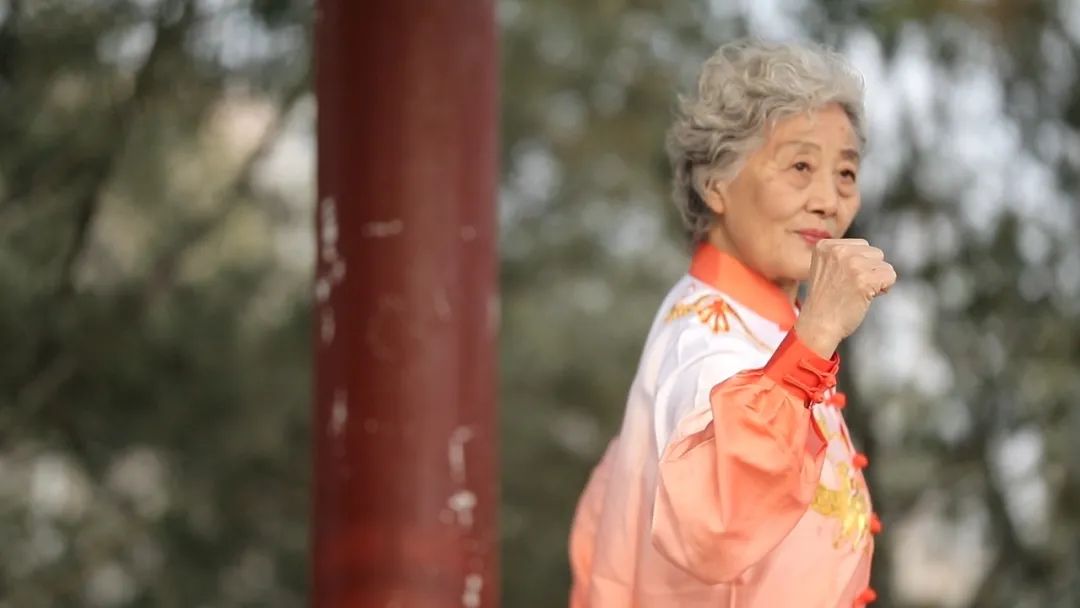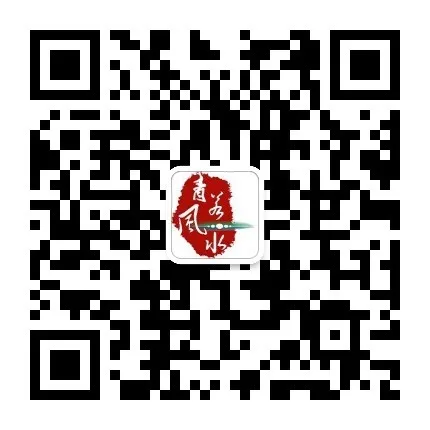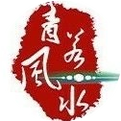 Click on “青风若水” above to follow us
Click on “青风若水” above to follow us

The seven emotions: joy, anger, worry, contemplation, sadness, fear, and shock, are normal phenomena of life activities and generally do not cause illness. However, abnormal fluctuations in these “seven emotions” can directly affect the functions of the organs, disrupt the flow of qi and blood, and lead to disease. Practitioners of health qigong may find that emotional influences prevent them from achieving a state of mental tranquility, thereby affecting the effectiveness of their practice. At the same time, practicing health qigong has a special role in regulating the “seven emotions.” Therefore, a thorough understanding of the physiological and pathological aspects of the “seven emotions” is of great significance and value for the practice of health qigong.
According to TCM theory: “Joy injures the heart and belongs to fire,” “Anger injures the liver and belongs to wood,” “Worry injures the spleen and belongs to earth,” “Sadness (worry) injures the lungs and belongs to metal,” “Fear (shock) injures the kidneys and belongs to water.” The Huangdi Neijing (Yellow Emperor’s Inner Canon) states: “Anger causes qi to rise, joy causes qi to relax, sadness causes qi to dissipate, fear causes qi to descend, … contemplation causes qi to stagnate,” indicating that excessive or extreme “seven emotions” can harm both physical and mental health.
Joy is a manifestation of happiness and pleasure. The Huangdi Neijing states: “Joy harmonizes qi and allows the will to be fulfilled, nourishing and protecting the body.” However, excessive joy can damage heart qi, as the Huangdi Neijing also states: “Excessive joy scatters the spirit and does not allow it to be stored,” indicating that excessive joy can harm the heart. The heart is the core of the five organs, the commander, and the key to influencing human health. Through practicing health qigong, one can regulate the heart’s pumping function, ensuring abundant heart qi. For example, in the health qigong form Yijinjing, the “Weituo Presents the Pestle” movement stimulates the Heart Meridian (Shou Shaoyin) and the Pericardium Meridian (Shou Jueyin) directly, thereby regulating heart function, smoothing the flow of qi and blood, improving microcirculation in the extremities, and promoting overall blood circulation. In the Five Animal Frolics, the “Monkey Play” movement enhances breathing and massages the heart, increasing the heart’s pumping ability. The “Hezi Jue” in the Six Healing Sounds involves exhaling the sound “He,” which helps expel turbid qi from the heart and regulates its function. The “Left and Right Bow Like Shooting Eagles” in the Eight Pieces of Brocade can also regulate the Heart Meridian and increase cardiac output.
Anger is an emotional response to unreasonable or unsatisfactory situations. Generally, a certain degree of emotional release is important for maintaining physiological balance, but prolonged anger, rage, and frustration can adversely affect the body, causing liver qi to rise, leading to symptoms such as headaches, chest tightness, and even severe conditions like fainting or vomiting blood. The Huangdi Neijing states: “All diseases arise from qi… anger causes qi to reverse, leading to vomiting blood and diarrhea.” The liver governs the smooth flow of qi and stores blood, ensuring unobstructed movement of qi throughout the body. Practicing health qigong can enhance the liver’s ability to regulate and store blood. For instance, the “Qinglong Explores the Claw” in Yijinjing involves twisting and bending the body to smooth liver qi and regulate emotions. The “Tiger Play” in the Five Animal Frolics uses hand movements and fierce expressions to open the liver meridians and enrich liver blood. The “Xuzi Jue” in the Six Healing Sounds involves exhaling the sound “Xu” to expel turbid qi from the liver and regulate its function. The “Clenching Fists and Glaring” in the Eight Pieces of Brocade stimulates the liver meridian, promoting liver health.
Contemplation refers to excessive thinking. Overthinking can negatively impact the body, obstructing the movement of qi and leading to stagnation or blockage. TCM states: “Contemplation causes qi to stagnate.” Ancient wisdom suggests: “If the body is not aligned, qi will not flow smoothly; if qi does not flow smoothly, the mind will not be at peace; if the mind is not at peace, the spirit will scatter,” indicating that obstructed qi directly affects the spirit. Excessive contemplation can lead to symptoms such as digestive issues, insomnia, and dizziness. Practicing health qigong can strengthen the spleen’s functions of transformation and blood regulation. For example, the “Nine Ghosts Pulling the Horse Blade” in Yijinjing involves twisting and stretching movements that stimulate the spleen. The “Bear Play” in the Five Animal Frolics enhances the spleen’s ability to transport nutrients and blood. The “Huzi Jue” in the Six Healing Sounds helps expel turbid qi and regulate the spleen and stomach. The “Regulating the Spleen and Stomach by Lifting One Arm” in the Eight Pieces of Brocade massages the spleen and stomach, enhancing their functions and promoting smooth qi and blood flow.
Sadness (worry) is a manifestation of sorrow and grief. Excessive sorrow and grief can damage lung qi, leading to shortness of breath. The Huangdi Neijing states: “Worry causes qi to become blocked and stagnant,” and “Lung qi deficiency leads to nasal congestion and shortness of breath.” Practicing health qigong can enhance the lungs’ respiratory functions. For instance, the “Weituo Presents the Pestle” and “Reverse Pulling the Nine Ox Tails” in Yijinjing stimulate the lung meridian, enhancing the lungs’ ability to clear impurities and renew themselves. The “Bird Play” in the Five Animal Frolics expands the chest and massages the heart and lungs, improving oxygen exchange and enhancing cardiopulmonary function. The “Kou Si Jue” in the Six Healing Sounds helps expel turbid qi from the lungs, facilitating the exchange of innate and acquired qi. The “Left and Right Bow Like Shooting Eagles” in the Eight Pieces of Brocade stimulates the lung meridian, increasing lung capacity and promoting overall qi and blood circulation.
Fear (shock) is a manifestation of fear and surprise. Excessive fear can damage the kidneys, leading to disordered organ qi. The Huangdi Neijing states: “Fear causes qi to descend… shock causes qi to become chaotic.” Practicing health qigong can enhance the kidneys’ functions of storing essence and regulating water. For example, the “Three Plates Landing” in Yijinjing involves squatting and exhaling the sound “Hai” to harmonize the heart and kidneys. The “Deer Play” in the Five Animal Frolics involves lateral bending to strengthen the kidneys. TCM states: “The waist is the residence of the kidneys.” The “Chui Zi Jue” in the Six Healing Sounds involves squatting and exhaling the sound “Chui” to expel turbid qi from the kidneys and regulate organ functions. The “Two Hands Grasping the Feet to Strengthen the Kidneys and Waist” in the Eight Pieces of Brocade promotes kidney health through physical movement.
In summary, the “seven emotions” are significantly connected to the internal organs. The “Three Adjustments” of health qigong have a beneficial regulating effect on the five organs, positively influencing and controlling emotional states. Conversely, the activities of the “seven emotions” can also affect the effectiveness of health qigong practice. Therefore, understanding the “seven emotions” and maintaining their normal state is crucial for practicing health qigong, ultimately allowing the body’s “Three Treasures” (jing, qi, shen) to gradually become abundant, achieving fullness of essence, sufficient qi, and complete spirit, thus enabling one to truly grasp the essence of health preservation and disease prevention.
Source: China Health Qigong Association, with thanks
 WeChat ID: shqfrs WeChat Name: 青风若水 – Scan to follow us
WeChat ID: shqfrs WeChat Name: 青风若水 – Scan to follow us

